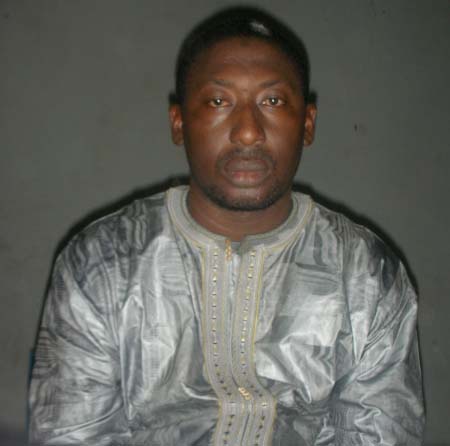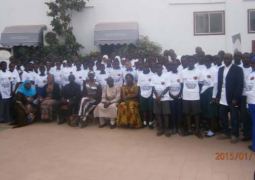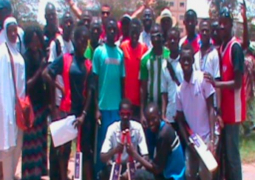
Musa
Sowe who was the acting director of National Youth Association for Food
Security (NaYaFS) is now the president of the National Coordinating
Organisation of Farmers in The Gambia (NACOFAG).
He
was elected president of NACOFAG at the 3rd national congress held at Farafenni
on Wednesday and Thursday. It was
attended by 15 member federations of NACOFAG.
Mr
Sowe replaced Muhammed Finkeh who was the president of NACOFAG from July 2011
to August 2016.
Alieu
Sowe, national coordinator of the network, said the main objectives of the
congress was to elect members of the national executive board, approve policies
formulated by the national executive board, approve the constitutional
amendments of the network, approve new members into the organisation and
determine membership dues.
The
technical and financial developments of the network, and the strategic plan for
the next three years were also presented to the congress.
From
the congress, NACOFAG came out with an approved three-year strategic plan,
operational manual and a financial manual for the network.
The
elected officials of NACOFAG for 2016 - 2018 are Musa Sowe, president;
Ma-Ngansa Jabbi, vice president; Kawsu Conteh, treasurer; Bakoto Mboge, president
women wing, and Alhaji Ebrima Beyai, president youth wing.
The
congress was attended by 125 farmers and leaders from the Association of
Farmers Educators and Traders (AFET); National Farmers Platform The Gambia
(NFPG); National Women Farmers Association (NAWFA); National Youth Association
for Food Security (NaYAFS); Federations of Cashew Farmers Association (FCFA);
Fish Smokers Association; Livestock Owners Association; Sheppard and Cattle
Farmers Association; Fandema Association, etc.
The
main thematic focus of NACOFAG includes the promotion and advancement of
family-farming initiatives nationally; promotion of economic initiatives of the
farmers; enhance the enterprise development of the youth through micro-credit
schemes and agric business development; promotion of agro-ecology and
agro-forestry development focusing more on climate resilience and indigenous
knowledge; increase the business development of the women on livestock; seed
multiplication and land development through enhanced capacity building, and
partnership development and integration of sectors locally and regionally
focusing more on agriculture and natural resources.



